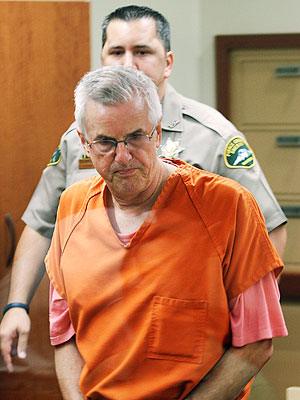The Delta Energy Center, a power plant about an hour outside San Francisco, was roaring at nearly full bore one day last month, its four gas and steam turbines churning out 880 megawatts of electricity to the California grid.
On the horizon, across an industrial shipping channel on the Sacramento-San Joaquin River Delta, scores of wind turbines stood dead still. The air was too calm to turn their blades — or many others across the state that day. Wind provided just 33 megawatts of power statewide in the midafternoon, less than 1% of the potential from wind farms capable of producing 4,000 megawatts of electricity.
As is true on many days in California when multibillion-dollar investments in wind and solar energy plants are thwarted by the weather, the void was filled by gas-fired plants like the Delta Energy Center.
One of the hidden costs of solar and wind power — and a problem the state is not yet prepared to meet — is that wind and solar energy must be backed up by other sources, typically gas-fired generators. As more solar and wind energy generators come online, fulfilling a legal mandate to produce one-third of California's electricity by 2020, the demand will rise for more backup power from fossil fuel plants.
"The public hears solar is free, wind is free," said Mitchell Weinberg, director of strategic development for Calpine Corp., which owns Delta Energy Center. "But it is a lot more complicated than that."
Wind and solar energy are called intermittent sources, because the power they produce can suddenly disappear when a cloud bank moves across the Mojave Desert or wind stops blowing through the Tehachapi Mountains. In just half an hour, a thousand megawatts of electricity — the output of a nuclear reactor — can disappear and threaten stability of the grid.
To avoid that calamity, fossil fuel plants have to be ready to generate electricity in mere seconds. That requires turbines to be hot and spinning, but not producing much electricity until complex data networks detect a sudden drop in the output of renewables. Then, computerized switches are thrown and the turbines roar to life, delivering power just in time to avoid potential blackouts.
The state's electricity system can handle the fluctuations from existing renewable output, but by 2020 vast wind and solar complexes will sprawl across the state, and the problem will become more severe.
Just how much added capacity will be needed from traditional sources is the subject of heated debate by utility officials, government regulators and policy experts. The concerns are expected to come to a head next year when the state must adopt a 10-year plan for its energy needs.
"This issue is someplace between a significant concern and a major problem," said electricity system expert Severin Borenstein, a professor at UC Berkeley's Haas School of Business. "There is definitely going to be a need for more reserves."
Borenstein said state legislators and the governor did not consider all of the details, such as unleashing this new demand for fossil fuel generators, when they set the 33% mandate for renewable energy. The state now gets 20% of its power from renewables, in part from older hydro and geothermal energy. Gov. Jerry Brown has advocated upping the goal to 40%.
The cost to consumers in the years ahead could be in the billions of dollars, according to industry experts. California's electricity prices are already among the highest in the nation and are projected to rise sharply in coming years. At the moment, the need for reserve power isn't considered a cost of renewable power, though consumers have to bear its costs as well.
The California Independent System Operator, the nonprofit company that runs the grid, estimates that by 2020 the state will need to double its reserve capacity. California now maintains a margin of 7% to 8% above projected daily demand, in case a nuclear power plant goes offline or outages occur. But when 33% of the state's power comes from renewables, that margin will have to rise to 15%, said Stephen Berberich, the firm's chief executive.
Nobody knows whether Berberich's estimate is right or how much the added capacity will cost. The California Energy Commission, which has responsibility for licensing new power plants and forecasting future power demand, said it doesn't have the analytical tools necessary to know how much reserve power will be needed.
"It is frankly in the development stage," said Mike Jaske, the commission's senior policy analyst for electricity supply.
The independent system operator is warning that by 2017 the state will be short by about 3,100 megawatts of flexible power that it can dedicate to meeting reserve needs — about what three nuclear reactors produce. The company is pushing the state Public Utility Commission to require that capacity. The commission has been noncommittal so far.
Solar and wind advocates reject those concerns. They say renewables can provide their own reserve cushion because solar and wind generators will be spread across vast areas of the state. If wind power is down in one region, it might be up in another. If wind power is down statewide, desert sunshine might boost solar.
On the day last month when wind energy provided just 33 megawatts of power statewide, a brilliant sun spiked solar plant output.
The independent system operator "likes to show these frightening graphs for shock value," said Nancy Rader, executive director of the California Wind Energy Assn.
Edward Randolph, director of the Public Utility Commission's energy division, said the independent system operator understandably wants more reserves because its primary focus is on the reliability of the system. The PUC is focused on cost. If there is an immediate problem with reserves, the PUC can order utilities to make more available. And in three to five years, batteries, flywheels or other new technology can provide storage that would make reserves much less necessary, he said.











